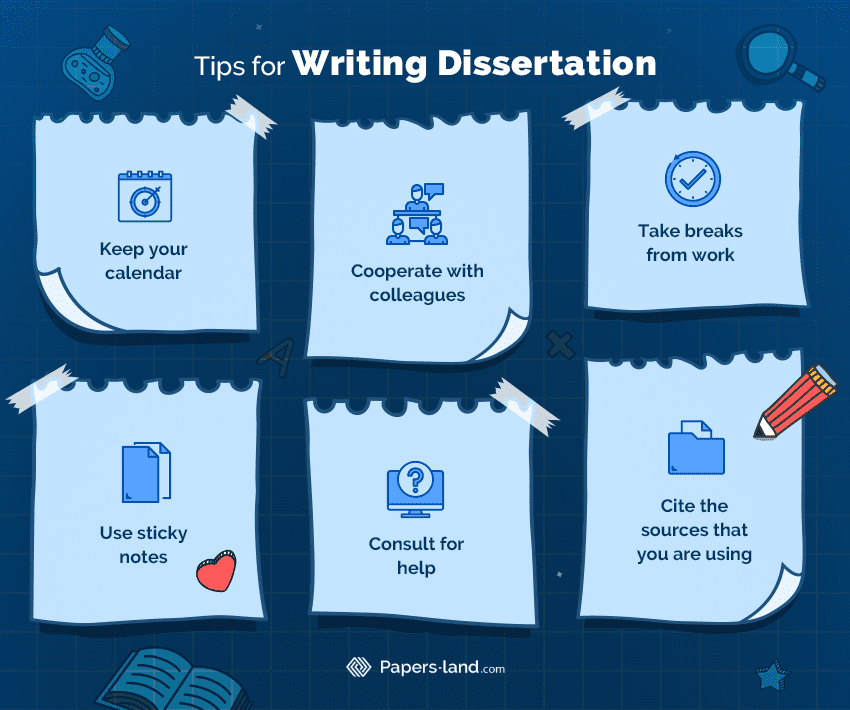


January 20, 2021
If you are currently working on a dissertation, it means that you have come closer to the end of your educational journey, so it should be essential for you to know how to write a dissertation perfectly. As a rule, dissertations are written when one is obtaining a doctoral degree. When working on this research project, a student is required to demonstrate the acquired skills and knowledge in a specific subject area. Apart from excellent writing skills and fluency in conducting research, a student should possess critical and analytical thinking skills. Besides, it is also important to conduct original research and to report on brand-new findings that may also make a contribution to the overall research area. In other words, the research should be valuable for the scientific and academic community. Another essential aspect of writing a dissertation is that it should be interesting for the readers and it should be acclaimed for publication in some scholarly journal. Overall, not only your knowledge but also your mindset is important when working on a dissertation project. To ease this dissertation writing process for you a bit, we have prepared a set of tips and guidelines on how to write a successful dissertation. Even if the guidelines provided below will not help you succeed with your writing, you can always turn for help to our best dissertation writing service.
The dissertation is the final academic writing project that students of the doctoral program have to submit and present before obtaining their Ph.D. degree. In some cases, this term is also used for the final paper that doctoral candidates have to submit before gaining the degree.
In essence, it does not really matter whether we mean a Ph.D. dissertation or an undergraduate dissertation. The requirements of the paper, formatting, as well as structure, are similar. The following guidelines will come in handy for both or Ph.D. and undergraduate students, and even to students who are working on their Master’s level thesis papers.
When students just begin to write a dissertation, they may start this process full of excitement and enthusiasm. They may be really passionate about conducting research, but the project can rather soon become a really intimidating one. When writing your dissertation, you need to be aware that the very process of working on it is complex, so you should be aware of all its parts, such as planning, data gathering, literature review, research, and the very process of writing. Normally, out of all these steps, the processes of planning, research, and writing are the most time-consuming and lengthy ones. The ultimate result will of course be rewarding, but you need to be aware of the obstacles that you will encounter in the process, so check them out:
Shortly, these are some of the main obstacles and challenges that you may face once you start working on the dissertation. However, it does not mean that you will never be able to tackle the assignment. Our professional writers have also provided a list of guidelines that will help you move in the right direction with your writing.
Below you will find the main steps on how to write a dissertation consistently:
Step 3: Follow the structure and start writing. The basic structure of the dissertation should be quantitative and deductive if you follow the structure below:
| Introduction |
|
| Literature Review | Critically analyze the main research problem within the realm of the existing studies and theoretical concepts. This section should look like a critical discussion rather than a mere description of sources and the gathered evidence. Be sure to rely only on those sources that are relevant to the research topic. |
| Methodology | Focus on the research design and describe in detail what data you collected and how you did it. Provide information on the data analysis and methods used. You may also include information on how you have selected the sample and the research setting. |
| Findings | Provide a concise summary of data, including a visual representation of the results, such as charts, tables, diagrams, and others. |
| Discussion | This section may be combined with the former one. In short, if you have not addressed findings above and have not reflected on them, it is just the right time to do it in this section. You need to relate the findings to the research questions that were provided at the beginning of the paper. Also, discuss the limitations of the study and its future implications. |
| Conclusion | Summarize the main information from the dissertation. Focus on the main aspects learned in the research process. Highlight on what should be learned from the process and what you could have done differently. |
Hopefully, these steps in writing a dissertation will help you manage your paper if you plan to write a dissertation on your own. If not, you can address our company and get expert writing help.
Dissertation writing tests not only your professional expertise, the ability to conduct research, and writing fluency but it also tests your work ethics and principles of academic integrity. Check out some useful tips that will help you come up with a successful dissertation:

Despite the fact that you can find plenty of recommendations on the Internet on how to write a dissertation, it may still be really challenging to cope with those requirements. Therefore, in cases when you are struggling with the assignment, a wise decision is to consult a professional custom writing service for help. By ordering a dissertation from professional writers, you can get a lot of advantages from this cooperation. You are guaranteed to receive a top-notch quality paper according to the set deadline. Our company operates 24/7, so you are free to place your order at any time of the day or night.
Get professional assistance from the best writer.